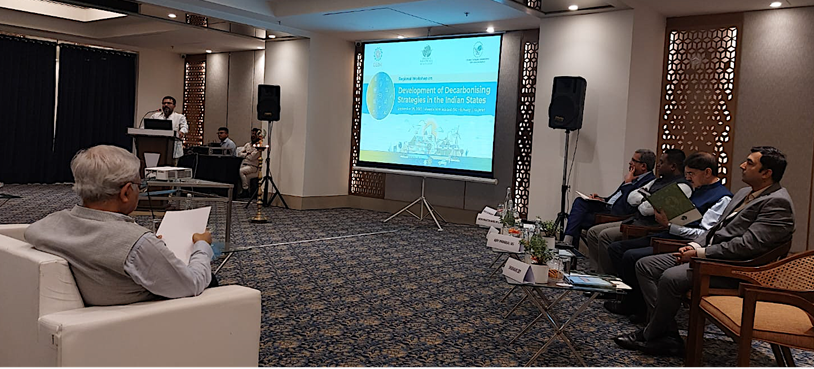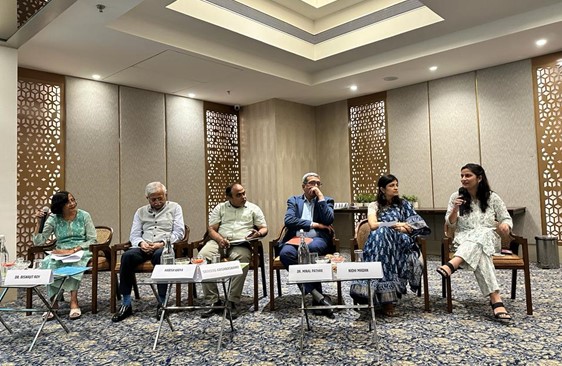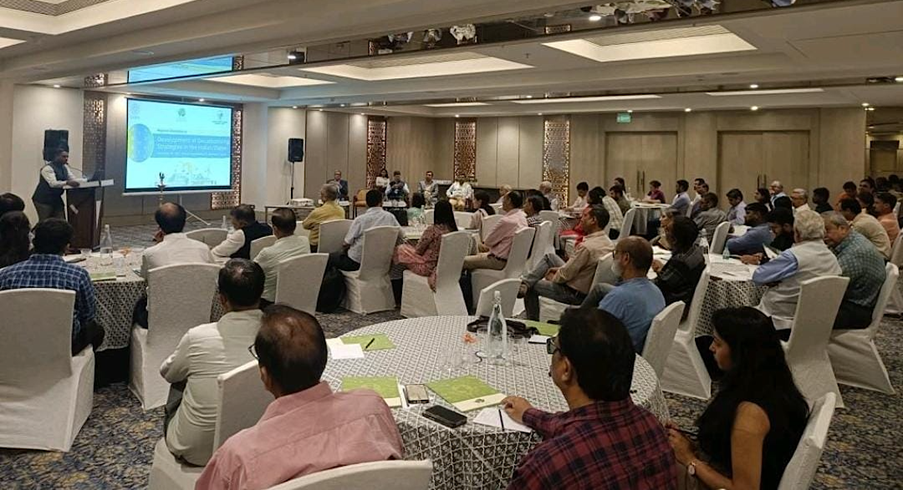A ‘Regional Workshop on the Development of Decarbonisation Strategies in Indian States’ was collaboratively organised by the Gujarat Energy Development Agency, Gujarat Ecology Commission, and Vasudha Foundation on September 29, 2023, in Ahmedabad. The workshop served as a platform for a wide array of stakeholders and sector experts operating at state and regional levels to engage in discussions regarding potential low-carbon pathways in Indian states. Participants also explored avenues to enhance cooperation among various stakeholders, including State-level nodal agencies, system operators, distribution utilities, policy institutions, and academia. The event saw active participation from government departments of Gujarat and Madhya Pradesh, academic institutions, civil society organisations, and distribution companies.

During the workshop, Shubhashis Dey, Director of Shakti Sustainable Energy Foundation, delivered the inaugural address. “Economy wide transition and climate action must be ingrained in the governance/decision making process of government and business at every level. Further, a participatory approach must be employed to engage communities and women while designing green economic transition plans”, said Shubhashis Dey emphasising the vital need for integrating economy-wide transition and climate action into the decision-making processes of both government and businesses at every level. He further stressed the importance of employing participatory approaches to involve communities and women in the design of green economic transition plans.

The workshop featured two panel discussions:
Role of Data and Information in Developing Decarbonisation Pathways in India

This session explored the significance of data and its management in formulating low-carbon development strategies for the country. Nidhi Madan, Associate Director, Shakti, presented on translating national goals to sub-national levels to ensure green economic development in states. The key takeaway was the central role played by states in advancing India’s climate action agenda. Given the diverse contexts, it is imperative to promote economic growth and developmental objectives while integrating green interventions. “States play a central role in advancing India’s climate action agenda. Given the diverse contexts, it is essential to promote economic growth and developmental objectives while integrating green interventions”, said Nidhi Madan highlighting the existing gap between research conducted by institutes, academia, and think tanks and policy formulation. Bridging this gap among different stakeholders emerged as a crucial necessity.
Role of Adaptation Strategies and Localising Climate Change for Overall Decarbonisation
This session focused on the significance of local adaptation solutions in enhancing the capacities of key stakeholders to address climate change challenges. The session also explored best practices that can be scaled up to integrate climate actions into mainstream developmental planning.

Panellists in both sessions were drawn from diverse sectors, including government, civil society, academia, and start-ups. This diversity provided a wide range of perspectives on planning the energy transition pathway. The workshop served as a vital platform for sharing insights and fostering collaboration to drive India’s sustainable and low-carbon future.
